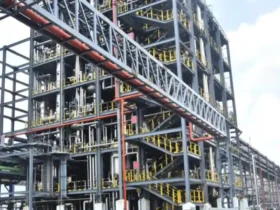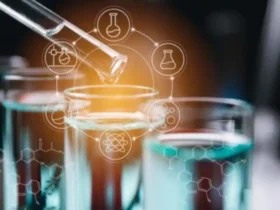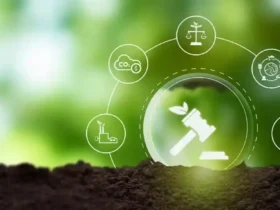
The world of chemical engineering is undergoing a digital transformation, and at the heart of this change is artificial intelligence (AI). From process optimization to predictive maintenance, AI is rapidly becoming an essential tool for chemical engineers. This integration is not just about automation; it’s about enhancing decision-making, improving efficiency, and unlocking new innovations in chemical processing.
In this article, we explore how AI is revolutionizing chemical engineering, the technologies making it possible, and what the future holds for this powerful synergy.
1. Enhancing Process Optimization
Chemical engineering often involves complex processes with numerous variables. AI algorithms can analyze massive datasets generated from sensors and control systems to identify optimal operating conditions. This helps in achieving better yield, reduced waste, and lower energy consumption.
Machine learning models are particularly effective in pattern recognition and predictive modeling. Engineers can use these models to adjust parameters in real-time, ensuring that chemical reactions are efficient and consistent.
2. Predictive Maintenance
Traditional maintenance schedules can be costly and inefficient, often resulting in unnecessary downtime or unexpected equipment failure. AI changes this with predictive maintenance. By analyzing historical and real-time data, AI can detect early signs of wear and failure in equipment like pumps, valves, and reactors.
This allows for timely intervention, reducing the risk of accidents and optimizing the lifespan of machinery. Predictive maintenance not only enhances safety but also leads to significant cost savings.
3. Accelerating Research and Development
AI is also making a huge impact in the R&D space. Designing new chemical compounds, materials, or catalysts can be a time-consuming process. AI-driven simulations and generative algorithms can rapidly explore chemical spaces, identifying promising candidates much faster than traditional methods.
For instance, deep learning models can predict molecular properties based on chemical structure, helping researchers prioritize experiments. This accelerates the innovation cycle and reduces the cost of developing new products.
4. Quality Control and Product Consistency
Maintaining consistent product quality is a major challenge in chemical manufacturing. AI-powered systems can monitor quality in real-time by analyzing data from production lines. These systems use computer vision, machine learning, and data analytics to detect deviations from desired parameters.
By catching anomalies early, manufacturers can reduce waste, ensure product uniformity, and meet stringent regulatory standards. AI-driven quality control also enables better traceability and documentation.
5. Supply Chain Optimization
AI is transforming chemical supply chains by enabling better demand forecasting, inventory management, and logistics planning. Machine learning models can predict market demand based on historical trends, seasonal patterns, and economic indicators.
These insights help companies maintain optimal inventory levels, reduce storage costs, and improve customer satisfaction. AI also supports dynamic pricing strategies and efficient route planning for chemical transportation.
6. Safety and Risk Management
Chemical plants are inherently risky environments, and safety is a top priority. AI can enhance safety by monitoring for hazardous conditions, predicting potential failures, and supporting emergency response planning.
Natural language processing (NLP) tools can analyze safety reports and incident logs to identify recurring issues. AI-driven simulations can also be used to train personnel on emergency procedures, making workplaces safer and more prepared.
7. Green Chemistry and Sustainability
AI contributes to sustainable chemical engineering by helping design eco-friendly processes. It can model energy usage, emissions, and waste generation under various process scenarios, guiding engineers toward greener solutions.
Additionally, AI aids in the development of biodegradable materials and the optimization of recycling methods. Its ability to process complex environmental data supports decision-making that aligns with sustainability goals.
8. Digital Twins and Smart Plants
A digital twin is a virtual replica of a physical process or system. AI enhances digital twins by enabling real-time simulation and predictive analytics. Chemical engineers use these tools to test changes in process conditions without disrupting actual operations.
Smart chemical plants equipped with IoT sensors and AI algorithms can self-regulate, adapting to changes in raw materials or demand. This leads to improved efficiency, lower operational costs, and reduced environmental impact.
9. Education and Skill Development
As AI becomes integral to chemical engineering, there’s a growing need for education and training. Universities are incorporating AI and data science into their chemical engineering curricula. Engineers must now be proficient not only in traditional chemical principles but also in programming, statistics, and machine learning.
Workshops, certifications, and online courses are helping professionals upskill and stay competitive in a rapidly evolving field.
10. Challenges and Ethical Considerations
Despite its promise, the integration of AI in chemical engineering comes with challenges. Data quality, cybersecurity, and algorithm bias are concerns that must be addressed. Ensuring transparency and accountability in AI decisions is crucial, especially in safety-critical applications.
Moreover, ethical considerations around data usage, job displacement, and environmental impacts require careful thought. Responsible AI deployment involves balancing innovation with social and environmental responsibility.
Conclusion
AI is revolutionizing chemical engineering by driving innovation, improving efficiency, and enabling more sustainable practices. From process optimization to digital twins, the applications of AI are vast and impactful.
For engineers, embracing AI means becoming lifelong learners and adapting to a world where data and algorithms are as important as chemical equations. As the field continues to evolve, the synergy between AI and chemical engineering will be key to solving some of the most pressing challenges of our time.
The future is intelligent, and for chemical engineering, it’s just beginning.








Leave a Reply